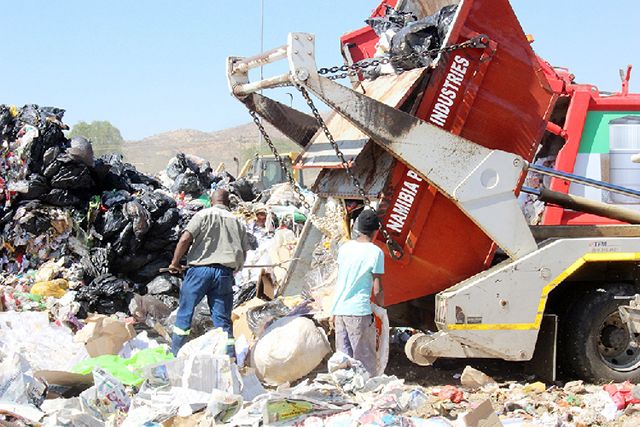SOUTH EAST Atlantic Ocean countries are lagging behind on measures to protect fish resources and sea life as well as on a number of key deadlines, Prime Minister Nahas Angula said on Monday.
Opening the third annual general meeting of the South-East Atlantic Fisheries Organisation (Seafo) in Windhoek, Angula said the World Summit on Sustainable Development in Johannesburg four years ago resolved that effective monitoring systems of illegal fishing should be in place by 2004 worldwide and that fishing capacities had to be in place by 2005. “Some implementation deadlines have passed.If you are behind schedule, my advice is to urgently devise a fast-tracking strategy to move upfront,” Prime Minister Angula said.Other deadlines approaching fast were the eco-system approach to fisheries management by 2010 and the restoration of over-fished and depleted fish stocks by 2015, Angula reminded scientists from those countries that are signatories to the Convention.Seafo is a regional fisheries organisation (RFO) established within the framework on the Conservation and Management of Fishery Resources in the South East Atlantic Ocean.The area covers 16 million square kilometres from the South African coast up to the northern border of Angola and westwards towards the islands of St Helena, Ascension and Tristan da Cunha.The Chairman of Seafo, John Spencer, said not all signatories to the convention had ratified it.To effectively counter illegal, unreported and unregulated fishing activities was a major priority.”Last year, Seafo took first steps in developing a comprehensive monitoring and control system, but that cannot be reached overnight.Let us avoid a repetition of what happened in the South West Indian Ocean, where an intensive trawling campaign wiped out the orange roughy fish resource in a few years,” Spencer cautioned.The Seafo Convention was established after an initiative launched in 1997 by the countries of the South East Atlantic Region – Namibia, South Africa and Angola.The United Kingdom is also a member in respect of its overseas territories of St Helena, Tristan da Cunha and Ascension Island.The Seafo convention was signed in 2001 and came into force on April 13 2003.Other signatories to the convention are Iceland, South Korea, South Africa and the US.The convention has been ratified by the European Community, Namibia and Norway.The convention ensures the long-term conservation and sustainable use of fish resources on the high seas of the South East Atlantic Ocean.South Africa is still not yet a member.Seafo is to adopt measures to ensure the conservation and sustainable use of fish resources, take account of the impact on ecologically related species like seabirds, whales, dolphins, seals and marine turtles and minimise harmful impacts on living marine resources and protect its biodiversity.”Some implementation deadlines have passed.If you are behind schedule, my advice is to urgently devise a fast-tracking strategy to move upfront,” Prime Minister Angula said. Other deadlines approaching fast were the eco-system approach to fisheries management by 2010 and the restoration of over-fished and depleted fish stocks by 2015, Angula reminded scientists from those countries that are signatories to the Convention.Seafo is a regional fisheries organisation (RFO) established within the framework on the Conservation and Management of Fishery Resources in the South East Atlantic Ocean.The area covers 16 million square kilometres from the South African coast up to the northern border of Angola and westwards towards the islands of St Helena, Ascension and Tristan da Cunha.The Chairman of Seafo, John Spencer, said not all signatories to the convention had ratified it.To effectively counter illegal, unreported and unregulated fishing activities was a major priority.”Last year, Seafo took first steps in developing a comprehensive monitoring and control system, but that cannot be reached overnight.Let us avoid a repetition of what happened in the South West Indian Ocean, where an intensive trawling campaign wiped out the orange roughy fish resource in a few years,” Spencer cautioned.The Seafo Convention was established after an initiative launched in 1997 by the countries of the South East Atlantic Region – Namibia, South Africa and Angola.The United Kingdom is also a member in respect of its overseas territories of St Helena, Tristan da Cunha and Ascension Island.The Seafo convention was signed in 2001 and came into force on April 13 2003.Other signatories to the convention are Iceland, South Korea, South Africa and the US.The convention has been ratified by the European Community, Namibia and Norway.The convention ensures the long-term conservation and sustainable use of fish resources on the high seas of the South East Atlantic Ocean.South Africa is still not yet a member.Seafo is to adopt measures to ensure the conservation and sustainable use of fish resources, take account of the impact on ecologically related species like seabirds, whales, dolphins, seals and marine turtles and minimise harmful impacts on living marine resources and protect its biodiversity.
Stay informed with The Namibian – your source for credible journalism. Get in-depth reporting and opinions for
only N$85 a month. Invest in journalism, invest in democracy –
Subscribe Now!










